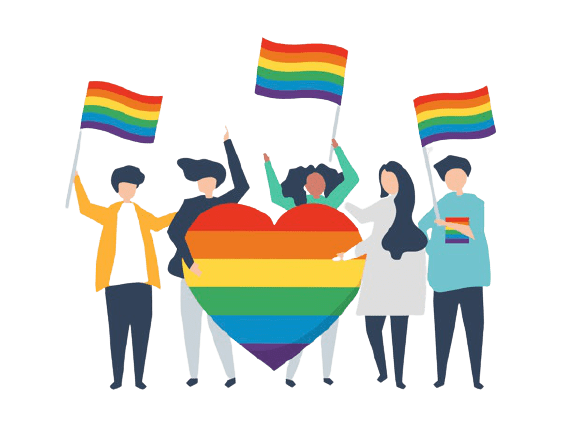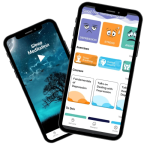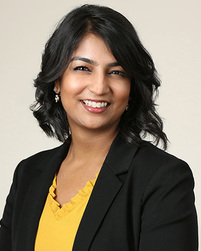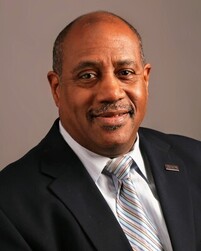Online Bisexual Counseling | Best Therapist For Bisexual Counseling
- Set up a free & confidential chat on your sexuality.
- Unlimited help through our self-care app.
- Live Video or Chat sessions with top Bisexual Counselors.
Begin Therapy
Consult online with best Therapist
Get The Best Help For Sexuality Issues
TherapyMantra is here to help you on your path to recovery from bisexuality. We match you with the best Bisexual Counselors available 24/7 via video call or messages.
Match with transgender Therapists
We assign the best counselors experienced in transgender issues based on your needs.
Affordable and Effective
Our online sessions are 90% less expensive than in-person therapy, available 24/7.
Self-Care
We offer ongoing support through self-care tools, depression help videos, chat groups, meditations, breathing exercises, and other resources.

Wondering if it’s just a phase or something more? Take our Free online Bisexual Counseling to find out?
How Does It Work?
You are matched with a Bisexual Counselor based on your needs and preferences. You get a secure “therapy room” where you can communicate with your counselor via chat or phone. You can write or talk about your issues & ask questions to deal with bisexuality.

Register for Bisexual Counseling
Simply complete a 5-minute online form to tell us about your sexual issues

Consult with your Bisexual Counselors
We connect you with Bisexual Counselors who are available 24/7 based on your preferences and needs.

Connect to Our App
Apart from Video/chat sessions, our app offers self-care tools, videos, and meditations to help you deal with your sexual issues.
Best Bisexual Counselors
Positive conversations, exercises, and meditations are used by TherapyMantra psychologists to help you deal with depression. Our Bisexual Counselors outperform traditional counseling as you get matched from a pool of 500+ Bisexual Counselors, who offer 24/7 unrestricted private chat.








Who Is A Bisexual?
The term bisexual describes a person who is emotionally and/or sexually attracted to both women and men. A bisexual person may not be equally attracted to both sexes, and the degree of attraction may vary over time. People who are bisexual may identify as heterosexual, homosexual, or prefer to place themselves on a continuum between the two. Those on the heterosexual end of the continuum usually prefer partners of the opposite sex; those on the homosexual end usually prefer partners of their same gender.
This term is not to be confused with pansexual, which is an attraction to all genders.
Types Of Bisexuals
There are many types of bisexuals. Some people who identify as bisexual may only be attracted to people of their own gender, while others may be attracted to people of all genders. :
- Romantic Bisexuals: These individuals are emotionally and/or sexually attracted to both women and men, but may only have relationships with people of one gender.
- Sexual Bisexuals: These individuals are physically and/or emotionally attracted to both genders, regardless of whether they have relationships with people of both genders.
- Fluid Bisexuals: These individuals’ attractions fluctuate over time; they may be more attracted to one gender at one point in their life, and more attracted to the other gender at a different point.
- Bisexual-Identified: These individuals identify themselves as bisexual.
- Straight-Identified Bisexuals: These people are married, partnered, or dating men/women, and may even be involved in the gay community. However, they still consider themselves attracted to both genders.
Symptoms Of Bisexuality
People who are bisexual might experience some of the following symptoms:
- Thoughts or fantasies about men and women
- Feeling sexually attracted to both men and women, but not equally attracted to both genders
- Who you’re sexually attracted to doesn’t necessarily define your sexual orientation. If someone is bisexual, they can be physically/emotionally attracted to members of any gender(s).
Causes of Bisexuality
There is no one answer to this question. Some people may be born bisexual, while others may become bisexual later in life. There are many possible reasons why someone might become bisexual, including:
- Having had a close relationship with someone of a different gender
- Experiencing physical or emotional attraction to more than one gender
- Dissatisfaction with the gender binary (i.e., the idea that there are only two genders)
- A lack of understanding or acceptance from friends, family, and society about bisexuality.
Treatment Options for Bisexuals
It’s common for bisexuals to struggle with issues in their relationships, whether they are romantic or not. This might involve bisexual therapy if the client is in a relationship, or individual therapy if they aren’t. A therapist may help clients work through different challenges that come up because of their bisexuality. For instance, some may feel that they have to choose between being gay or straight, neither of which feels right to them. Others may feel hurt by partners who refuse to accept their bisexuality. Some bisexuals may even experience physical symptoms of anxiety when talking about these topics with their therapists. These experiences are normal and appropriate for this population of people- it can be very beneficial to chat openly about these kinds of concerns during therapy.
Therapy Options For Bisexual Counseling
Bisexuality can be treated through a number of therapies. Depending on the individual’s needs. Some common treatments include:
Individual Counseling
This is a one-on-one meeting between the client and the counselor, where the client can discuss any issues or concerns they have about their bisexuality.
Group Counseling
This is a meeting with a group of people who are also struggling with bisexuality. It can be helpful for clients to share their experiences and learn from others.
Psychotherapy
This is a therapy that focuses on the mind and emotions. It may help the client understand why they became bisexual, and how to deal with any emotional difficulties that come because of it.
How to find a Bisexual Counselor?
TherapyMantra can help you find a Bisexual Counselor near you. We have over 500+ therapists listed on our therapist directory. You can follow the following steps to find a good Bisexual Counselor:
- First, ask your family doctor or anyone else you are seeing for a referral for Bisexual Counseling.
- The next thing you’ll want to do is ask your friends and loved ones for referrals.
- The next thing you’ll want to do is look online. There are many websites that help people find therapists in their area who can treat things like these.
10,000+ Happy & Healed patients

“Therapy Mantra’s therapist was easy to talk to, and it was wonderful and beneficial to communicate my problems in a safe environment.” I treasure our simple ‘connection,’ and I value his knowledge and experience, as well as how this has translated into a compassionate and caring professional relationship with me.”
Kevin,
1 year on TherapyMantra
FAQs
Bisexuality refers to a person that experiences sexual or romantic attraction towards more than one gender. There are some people who believe that everyone is bisexual, as we all have the capacity for both same-sex and opposite-sex attractions.
There is no one answer to this question, as it means different things to different people. For some, it may mean that they are equally attracted to both men and women. Others may see themselves as heterosexual but still attracted to people of other genders. Still, others may be fluid in their attractions, meaning that they may feel more drawn to one gender at one time and another gender at another time.
Bisexuals can experience a number of challenges because of their sexuality. To treat this, therapy may need to focus on one or more of these areas:
- Bisexuality can cause the client to feel stigmatized by both straight and gay communities. The therapist can help the client find resources that are supportive of bisexual people.
- It’s common for bisexual individuals to experience feelings of guilt, shame, and anxiety due to their sexuality. A therapist can help them process those emotions in order to reduce any negative effects they may be having as a result.
- If the client has begun dating someone, it’s likely that there will be challenges with balancing an existing relationship with their attraction towards other genders. A therapist can provide support during this time, and help them navigate through any difficulties that come.
First, it’s important that there is no one way to discover your sexuality. There are many factors that can play a role in how you might come to understand who you are attracted to, including religious beliefs, the communities you have been involved with, and your family dynamics. Second, it’s important to remember that bisexuality is just one part of what makes up your sense of identity- being bisexual does not mean that you have any other specific traits or characteristics. Third, there may be some initial confusion around this topic because our society often sees things as either black or white (i.e., gay or straight) when in reality it can be much more complex than this!
This can be a difficult and challenging situation. It’s important that you have a discussion with your partner about how you both feel. If they do not accept your bisexuality, it may be helpful to seek couples counseling to help navigate this difficult terrain. The therapist can assist in providing tools and resources to help the relationship continue to thrive.
First, it’s important that you remember that there is no ‘right’ or perfect way to be. Second, please know that these feelings are very common- nearly everyone can relate to them at some point in their life because of social pressures and expectations around sexuality. It may be helpful for you to speak with a trained mental health professional who can help you process these feelings so you don’t have to go through them alone.


